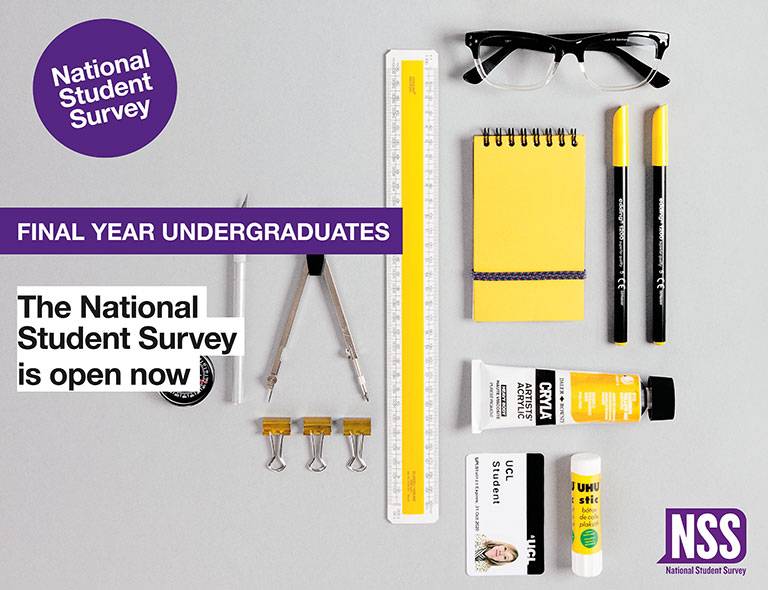Vice-Provost's View: Why we need to get assessment and feedback right
2 March 2017
I am often asked, not least by members of the Governing Body, why student satisfaction with assessment and feedback is persistently low across the whole HE sector and particularly here at UCL.

My usual answer is 'too much assessment and too little feedback'. This response sounds glib but it is not intended to be. It reflects the fact that often different assessments get layered one on top of the other and we are usually too frantically working on all the other aspects of academic life to step back and ask whether the type and amount of assessment still makes sense.
But why are assessment and feedback so important?
It is evident that they shape what students learn, and the emphasis they subsequently place on various aspects of the taught curriculum. And, as UCL education shifts towards research-based learning, guided by our Connected Curriculum framework, we need to make sure that our assessment reflects that shift.
However, delivering excellent assessment and feedback is far from straightforward. Indeed, the third objective of UCL's Education Strategy 2016-21 is: "To address and resolve the persistent challenges of assessment and feedback."
To someone from outside the higher education sector, this might be surprising. After all, isn't assessment and feedback a core process in education these days, right from kindergarten? Surely university assessment is a highly developed and effective process.
The National Student Survey
Well, not if you listen to our students. National Student Survey scores for assessment and feedback lag considerably behind the sector average.
In 2016, only 64% of students were satisfied with assessment and feedback, compared with a sector average of 74%, giving us a disappointing ranking of 149 out of 159 institutions.
Nevertheless, this outcome actually represented the first improvement in this area for a decade, with a rise of 3%. And, through careful and sustained action, we believe it is possible to maintain the upward trend.
Last year, a number of initiatives sought to improve assessment across the university. Students tell us that they want to understand how they will be assessed and they want feedback on where they could have done better that will help them to improve their next assignment.
We asked departments to make changes to practice using the Assessment and Feedback Benchmarking Tool, developed by the National Union of Students, and improve the communication of assessment criteria, workload distribution, marking consistency, and the timeliness and quality of feedback.
Progress continues to be monitored through the Annual Student Experience Review (ASER) process. You can explore many examples of best practice across the university through case studies on the Teaching and Learning Portal.
We recruited students as ChangeMakers Scholars to work directly on assessment in departments with low NSS scores. Thirty-one students took on a range of tasks, creating marker's commentaries, developing a specific feedback form for students, advising on a new interdisciplinary, vertical assessment, and investigating what students would like on assessment and feedback tabs in Moodle.
Overall satisfaction scores in the NSS improved in these departments by 5.2% on average between 2015 and 2016, compared with 3% across UCL as a whole.
We also introduced the My Feedback tool, which allows students to see, for the first time, an overview of all their grades and feedback. The tool helps students both to understand the range of feedback that they receive and to identify similarities between feedback across modules and years so they can target areas for improvement.
The system has had more than 86,000 unique page views since its launch in October 2016, and 17% of all staff and students have already used it.
But there is much more to be done.
Developing assessment literacy
We need to develop systems that support good practice in assessment. And we need to produce resources that help develop assessment literacy - by which I mean not only the ability of staff to give students helpful feedback but also the ability of students to make good use of it. (To find out more about assessment literacy, visit Gwynneth Hughes' excellent post on the IOE London blog).
So we have embarked on a three-year programme to review and improve assessment across UCL. The review team will work initially with faculties to audit the assessment culture.
The audit outcomes will then form the basis of a series of workshops that will support staff to address assessment challenges at programme level.
In collaboration with UCL ChangeMakers and departments, we will develop resources to help staff with assessment design and the development of assessment literacy. Workshops will be delivered at programme level and targeted initially at programmes with lower NSS scores.
We are also working with our education partners to develop quick guides to the secondary school assessment culture, to support effective transition to higher education.
Reviewing progress
An Assessment Review Group, which includes student and staff representatives across the university, has been established and will report regularly to Education Committee, and to other UCL committees as appropriate.
Progress will also be overseen by the Education Strategy Implementation Group. By June 2017, we expect an interim report and initial recommendations for action, and workshops will begin in faculties towards the end of the year.
Of course, we are inviting staff to become involved - initially, we are seeking volunteers to audit assessments at programme level. Please contact Dr Clare Goudy, Director of Education Planning (c.goudy@ucl.ac.uk), for further information.
How will we measure progress? We seek significant improvements in student satisfaction with assessment and feedback.
This is not about league table rankings - though, of course, improved performance is a welcome side effect - this is about listening to our students and judging our work accordingly.
This is a drive to deliver the best possible student experience, and to make sure that a UCL education is genuinely among the best in the world.
Professor
Anthony Smith
Vice-Provost (Education
and Student Affairs)
 Close
Close

